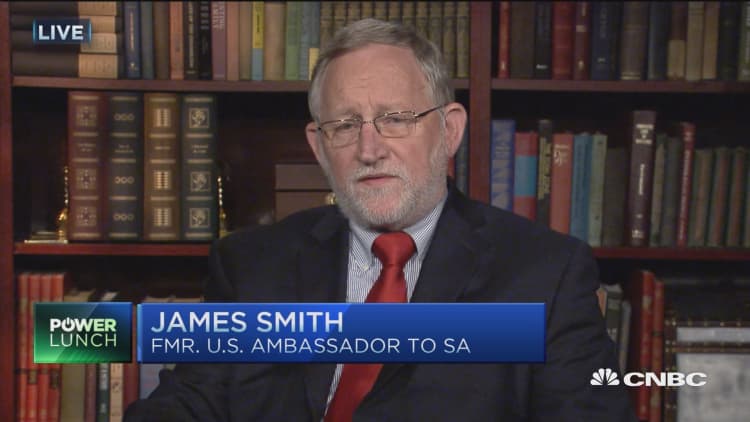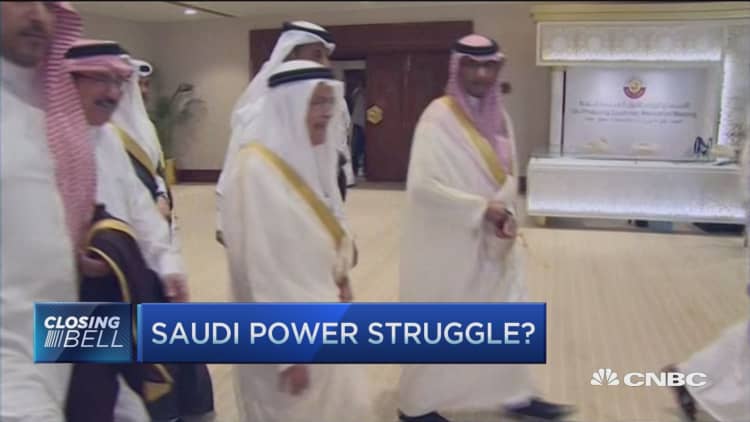


While the long-awaited Doha meeting disappointed energy investors who expected an output freeze deal, shale industry pioneer Harold Hamm, who didn't "have a whole lot of hope" in the Sunday meeting, told CNBC that the crude glut will be balanced the second half of this year.
The founder and CEO of Continental Resources, who previously told CNBC that "the fundamentals of supply and demand were really close," reiterated during a "Power Lunch" interview on Monday that this year's third-quarter will absorb most of the excess oil supply, which in turn will lead to "stronger pricing."
The billionaire suggested that oil is past an inflection point and prices have surged 50 percent from previous lows. Hamm foresees crude prices soaring to $60 a barrel by the end of the year, as lower oil prices are unsustainable. He contends, however, that even when the oil "overhang goes away," ramping up production will take U.S. producers a long time, as rig counts are at an all-time low.
He added that U.S. rig counts "are down 77 percent."
Despite oil producers failing to reach a deal to combat excess supply in the oil market, which led crude to shed 6 percent on Sunday, prices paired losses on Monday, amid a worker strike in Kuwait that has cut the country's oil output by more than half.
Conversely, market watchers consider that more anomalies will force oil-producing countries to minimize output. Bob McNally, founder and president of The Rapidan Group, told CNBC's "Power Lunch" that both involuntary and voluntary output disruptions can impact the oil market.
"Will Nigeria get that pipeline fixed in May or June? ... Will Iraq be able to sustain output through the north ...? Will Libya be able to inch back up?" he said. While involuntary outages are an open question, Iran and Saudi Arabia have both threatened to increase oil output, McNally told CNBC.
"[Iran] last said they were doing 3.5 million barrels a day, can they do more?" he said. "Prince Mohammad bin Salman said on Friday they could go another million barrels a day (plus) immediately, will Iran gun-it?"
In this same vein, Hamm argued that oil producers in the Middle East are "pretty much tapped out."
On Monday, the internationally traded Brent was down 24 cents at $42.86. It had fallen $3 earlier in the session. U.S. oil settled 58 cents lower at $39.78, after sliding to $37.61 at the day's low.
On the other hand, Francisco Blanch, head of global commodities at Bank of America Merrill Lynch, told CNBC's "Closing Bell" on Monday that Saudi Arabia wants to maintain oil market volatility.
"Ultimately, what Saudi wants to get out of this is a larger market share," he said. "There's no better way to get your market share higher than by discouraging investment around the world."
— Reuters contributed to this report.




